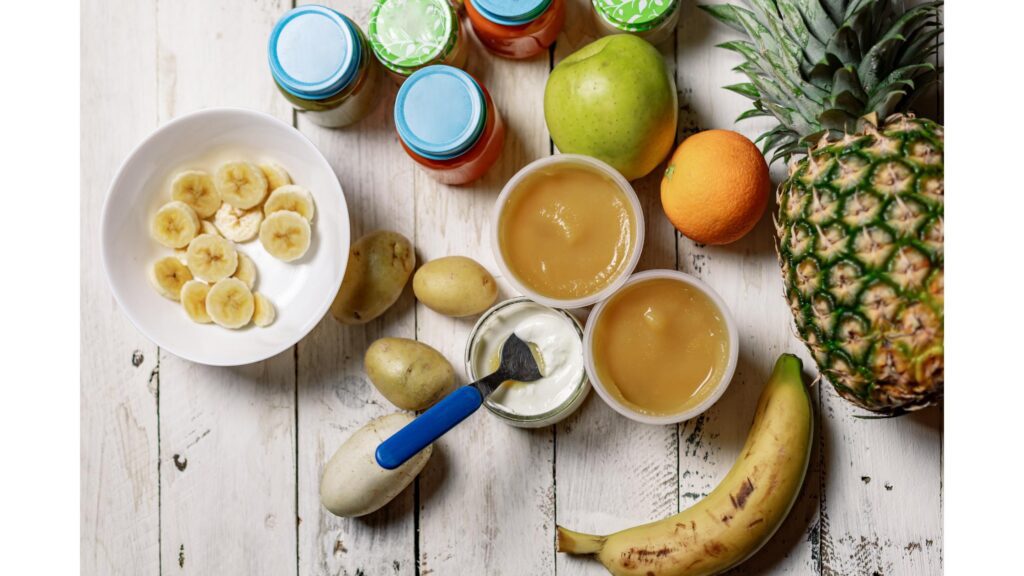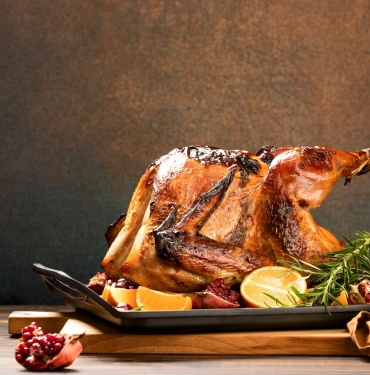It is recommended that a baby be fed only breast milk or formula from birth. But around the sixth month, the baby's nutritional needs begin to change and solid foods may need to be introduced. The process of babies' transition to solid foods is important both physically and developmentally and should be started at the right time.

Transition to Solid Foods for Babies
Babies' immune system, digestive system and muscle development strengthen over time after birth. By the sixth month, babies can usually hold their heads upright, their tongue and jaw muscles become stronger, and their swallowing reflex develops. This is a good time to start solid foods.
Here are the important points you should consider during the transition of babies to solid foods:
- Right timing: Babies are usually ready to start solid foods around the sixth month. But every baby is different, so you should check with your doctor to determine if your baby is ready. Generally, signs such as the baby's ability to hold his head upright, his swallowing reflex being developed, and showing interest indicate that he is ready for solid foods.
- First foods: Cereals, vegetables and fruits are generally preferred when starting solid foods for babies. Foods such as rice porridge, carrot puree and banana may be suitable for the baby's digestive system. Initially, it is important to start with a single ingredient and monitor each new food for several days to check for allergic reactions.
- Consistency: At first, a puree or porridge-like consistency should be preferred so that babies can get used to the food. Later, your baby may gradually begin to accept thicker and grainier foods.
- Breastfeeding or formula should continue: Switching to solid foods does not mean completely stopping breast milk or formula. It is important that babies still receive milk or formula as their main source of nutrition. Solid foods are used only to provide additional nutrition and are offered with milk or formula.
- Allergy risks: It should not be forgotten that babies may be sensitive to allergic reactions. It is important to consult your doctor before you start giving foods containing potential allergens (peanut butter, fish, eggs, etc.) to the baby. When you start a new food, it is important to monitor for symptoms and contact your doctor immediately if you see signs of an allergic reaction.
- Going slowly: Your baby may not accept new foods or may react with facial expressions at first attempts. It is important to be patient and gradually introduce your baby to new tastes and textures. Over time, your baby will accept a wider range of foods.

The transition of babies to solid foods is a phase that must be carefully managed. It is important to offer your baby appropriate foods and textures, monitor for allergic reactions, and follow your doctor's guidance. Since each baby's development is different, a feeding schedule should be created according to their individual needs.
While it is recommended that babies be fed with breast milk or formula from birth, solid foods should be added around the sixth month. This is a phase when the baby's nutritional needs change and he is ready to explore new tastes and textures.
In this article, we present three solid complementary food recipes suitable for babies aged 6-9 months. These recipes will help you provide nutritious and delicious options that will contribute to your baby's healthy diet.
Our first recipe is banana oatmeal. Oats are an easy-to-digest grain for babies and provide energy. Banana provides a sweet flavor and natural consistency. This recipe allows you to offer your baby a meal that is both satisfying and nutritious.
Our second recipe is carrot and potato puree. Carrot is a vegetable rich in vitamin A and is important for eye health. Potatoes are a source of energy and carbohydrates. Carrots and potatoes cooked and mashed together allow you to offer your baby a vegetable puree with high nutritional value.
Our third recipe is blueberry yoghurt. Yogurt supports your baby's digestive system and bone health with its probiotic properties and calcium content. Blueberries are a fruit rich in antioxidants and strengthen the immune system. This recipe ensures that your baby gets healthy probiotics and offers a delicious taste.
These recipes introduce your baby to healthy and diverse foods on their nutritional journey. But since every baby is different, it's important to check with your doctor before introducing a new food. It is also important to monitor your baby for allergic reactions and introduce new foods slowly.
It is very important for your baby to be fed with the right foods at the right time for a healthy growth. By using these recipes, you will contribute to your baby's nutrition and offer him or her an enjoyable eating experience.
Banana Oatmeal:
Materials:
- 1/4 cup oatmeal
- 1/2 cup water
- 1/2 ripe banana
Fabrication:
- Place the oatmeal and water in a pot. Cook over medium heat, stirring, until it boils.
- After boiling, reduce the heat and cook the oatmeal over low heat for another 2-3 minutes, stirring occasionally to obtain a smooth consistency.
- Mash the banana and mix it with oats.
- Let the puree cool down a little and then offer it to your baby.
Carrot and Mashed Potatoes:
Materials:
- 1 medium carrot
- 1 small potato
- 1/4 cup water (or vegetable broth)
Fabrication:
- Wash carrots and potatoes, peel them and cut them into cubes.
- Add water (or vegetable broth) to a pot and bring to a boil.
- Add chopped carrots and potatoes to boiling water and cook until tender.
- After cooking, drain the water and transfer the carrots and potatoes to the blender.
- Mix until it reaches the consistency of puree.
- Let the puree cool down a little and then offer it to your baby.
Blueberry Yogurt:
Materials:
- 2 tablespoons of natural yoghurt
- 1/4 cup blueberries (fresh or frozen)
Fabrication:
- Wash blueberries (thaw if frozen).
- Add yoghurt to a bowl.
- Puree the blueberries in a blender or with a masher.
- Add blueberry puree to yoghurt and mix well.
- Let the puree cool down a little and then offer it to your baby.
These recipes will help you offer healthy and nutritious solid supplements to your babies. Before introducing a new food to your baby, be sure to consult your doctor to check for allergic reactions.

















